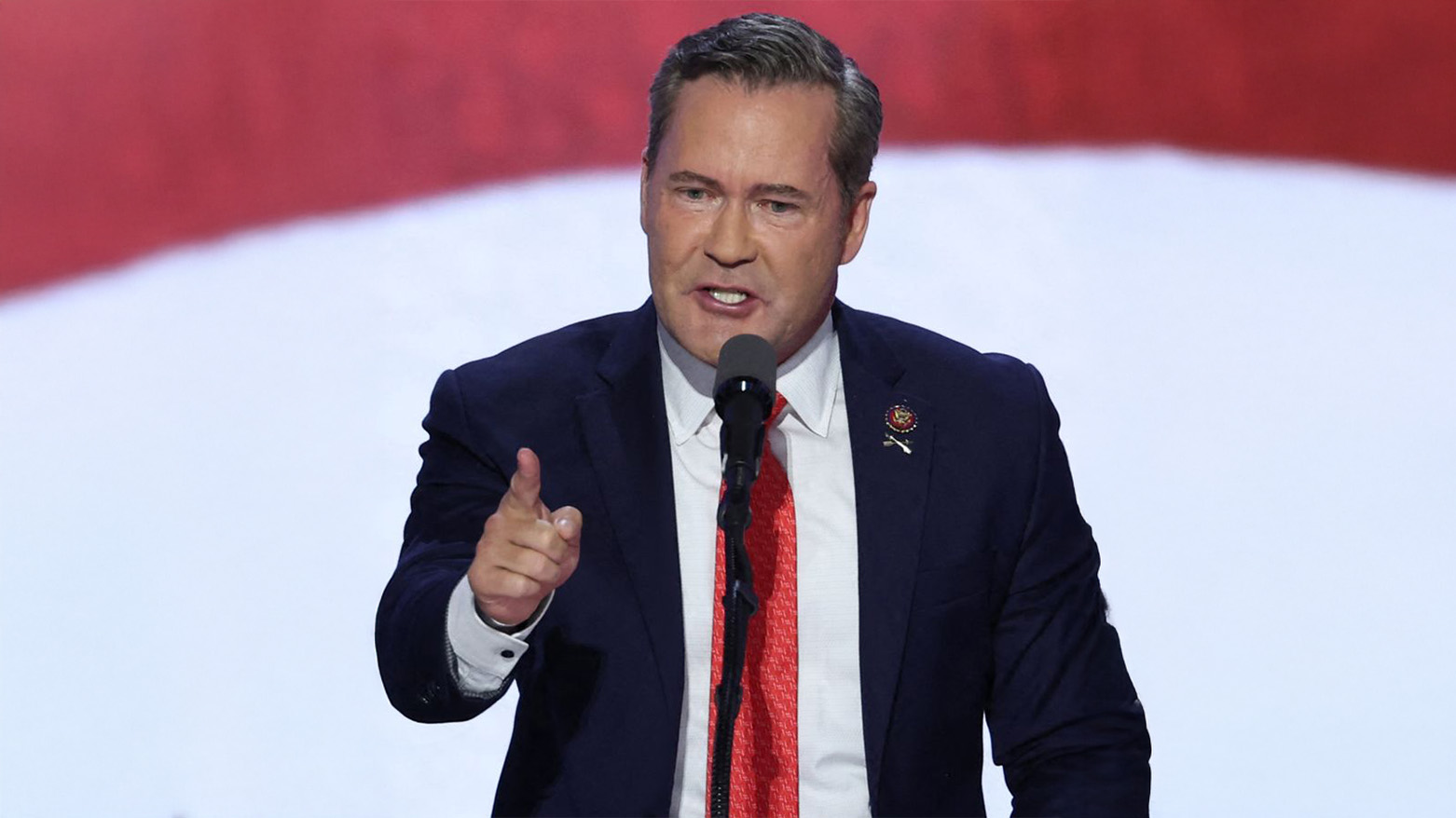U.S. Warns Iran: ‘Give Up Nuclear Program or Face Consequences’
Waltz stressed that Iran must fully abandon its nuclear ambitions to avoid severe consequences, stating the U.S. will not tolerate further advances in Iran's nuclear or missile programs.

ERBIL (Kurdistan24) – The Trump administration is ramping up its military campaign in the Middle East with a firm demand for the "full dismantlement" of Iran's nuclear program, White House National Security Adviser Mike Waltz declared on Sunday during an interview on Face the Nation with Margaret Brennan.
Waltz emphasized that Iran must completely abandon its nuclear ambitions to avoid dire consequences, stressing that the U.S. will not tolerate any further advancements in Iran's nuclear weapons capabilities or its strategic missile programs.
Waltz's remarks came after President Donald Trump pledged to hold Iran accountable for any future attacks carried out by the Yemen-based Houthi rebel group, which has been targeting military and commercial ships in the Red Sea. The Houthis, a faction supported by Iran and designated a terrorist group by the U.S., have disrupted a vital trade route in the region, through the Suez Canal. Although the effectiveness of the Houthi strikes has varied, the ongoing threat to global trade is a key concern for the Trump administration.
"Iran has to give up its program in a way that the entire world can see," Waltz asserted. "It is time for Iran to walk away completely from its desire to have a nuclear weapon." He underscored that Iran's nuclear weapons program, along with its missile capabilities, poses a grave threat to regional stability, particularly in the Middle East. "If they had nuclear weapons, the entire Middle East would explode in an arms race," he warned, calling such a scenario "completely unacceptable" for U.S. national security.
Despite the escalating rhetoric, Waltz left room for diplomacy, noting that "there are still opportunities for diplomacy between the U.S. and Iran." However, President Trump has made it clear that the U.S. is prepared to take a hard line in its dealings with Tehran. Just two weeks ago, Trump sent a letter to Iran's Supreme Leader Ayatollah Ali Khamenei, urging negotiations to prevent Iran from acquiring nuclear weapons without resorting to military action.
The tension around Iran's nuclear program has been building since the United Nations nuclear watchdog, the International Atomic Energy Agency (IAEA), reported in February that Iran had significantly increased its production and stockpiling of highly enriched uranium. This development signaled a troubling advance in Iran's nuclear capabilities under President Trump’s second term. In response, Trump withdrew from the 2015 nuclear deal during his first term, which had sought to curb Iran's nuclear ambitions, and re-imposed stringent sanctions on the country.
Khamenei responded to the U.S. threats in a televised address, warning that "threats will get them nowhere" and that any attempts to malign Iran would result in "a hard slap." The Iranian government has consistently denied accusations that its nuclear program is geared toward developing weapons, maintaining that its activities are peaceful.
The escalating tensions over Iran’s nuclear program, alongside growing conflicts in the region, highlight the complex and volatile dynamics of U.S.-Iran relations. While the Trump administration remains committed to dismantling Iran’s nuclear ambitions, it is clear that the situation is far from resolved, with both sides on a collision course.
As tensions continue to rise, we can expect further diplomatic efforts, but the risk of military escalation remains high, particularly with the involvement of Iranian-backed groups in the region.